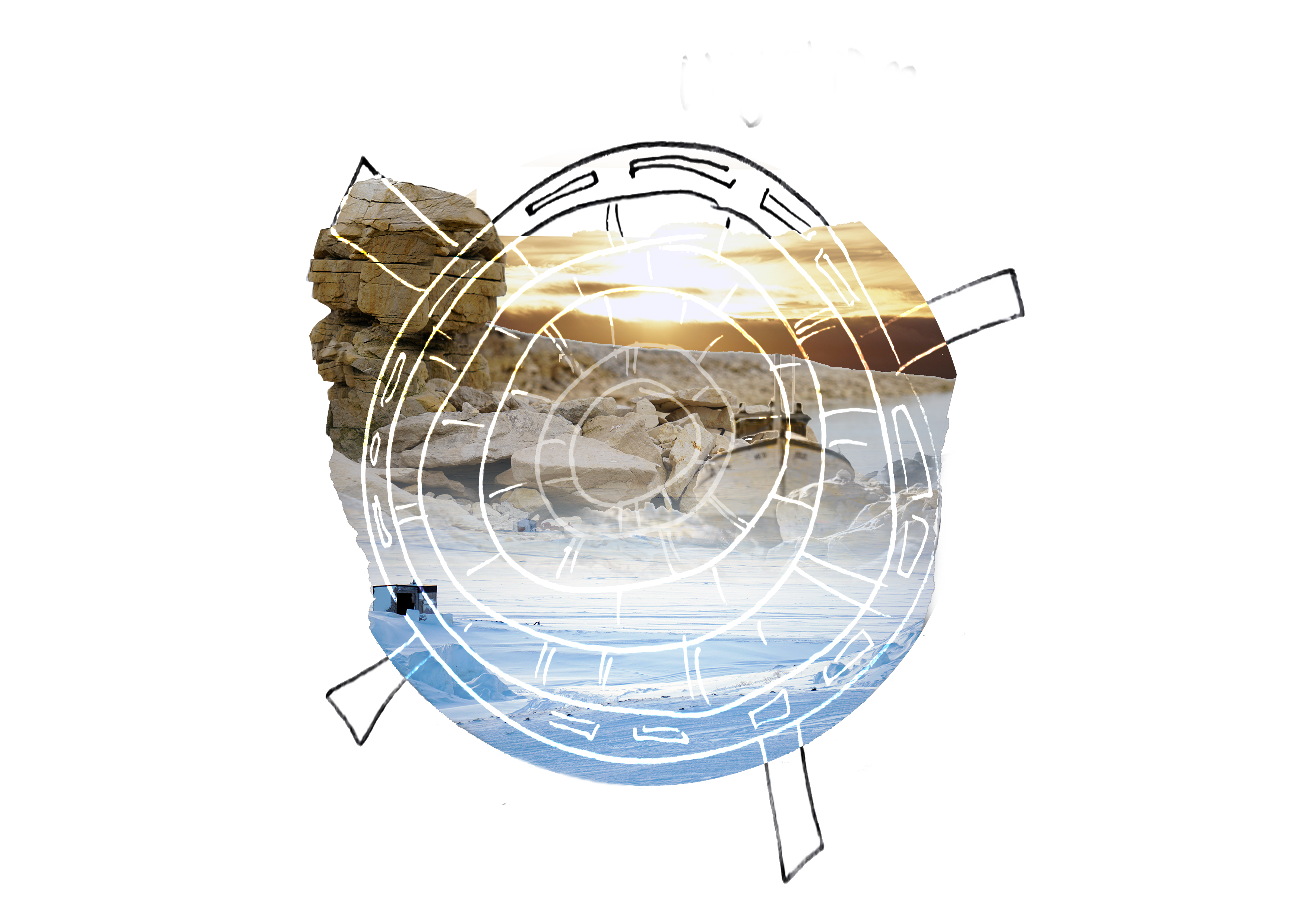The Wayfarer Vista: Difference between revisions
No edit summary |
No edit summary |
||
| (8 intermediate revisions by the same user not shown) | |||
| Line 1: | Line 1: | ||
[[File:Vista.png|thumb]] | |||
As a researcher, you either move through the world in response to the emergent gestures and the existence of others, or you don’t. Too many concepts, principles and terms originating from indigenous places of beginning are applied in ways that Tuck and Yang would call metaphorical moves to innocence (Tuck & Yang, 2012). Zoe Todd points to how words (or approaches) are appropriated on paper, without attaching meaningful and transformative practices and gestures to them. Shawn Wilson writes, in his book ‘Research is Ceremony’, about ‘writing "bread" on a piece of paper and eating the paper instead of having the bread’ (Wilson, 2008 p.103). This might seem like a weird approach when it comes to engaging with research (or eating bread for that matter). Yet, this is exactly what happens when researchers describe in their proposals how they will ‘ethically engage’ with Indigenous knowledge in their proposals, but then fail to practice their research in correspondence with such protocols. They ‘’eat the paper instead’’. | As a researcher, you either move through the world in response to the emergent gestures and the existence of others, or you don’t. Too many concepts, principles and terms originating from indigenous places of beginning are applied in ways that Tuck and Yang would call metaphorical moves to innocence (Tuck & Yang, 2012). Zoe Todd points to how words (or approaches) are appropriated on paper, without attaching meaningful and transformative practices and gestures to them. Shawn Wilson writes, in his book ‘Research is Ceremony’, about ‘writing "bread" on a piece of paper and eating the paper instead of having the bread’ (Wilson, 2008 p.103). This might seem like a weird approach when it comes to engaging with research (or eating bread for that matter). Yet, this is exactly what happens when researchers describe in their proposals how they will ‘ethically engage’ with Indigenous knowledge in their proposals, but then fail to practice their research in correspondence with such protocols. They ‘’eat the paper instead’’. | ||
| Line 5: | Line 7: | ||
Understanding Knowledge conciliation to be part of such practices and processes, rather than a stage of data collection or processing, reconceptualized knowledge in similar ways. Knowledge is, like ethical principles, not a static pool of resources to include in one’s research. Knowledge is something one does. Knowledge as something more practical/tacit that flows in-between, among, and around different performative bodies is often not acknowledged in more positivist traditions of science, that seek objective and representative measurability. It’s actively regenerated across time and space. | Understanding Knowledge conciliation to be part of such practices and processes, rather than a stage of data collection or processing, reconceptualized knowledge in similar ways. Knowledge is, like ethical principles, not a static pool of resources to include in one’s research. Knowledge is something one does. Knowledge as something more practical/tacit that flows in-between, among, and around different performative bodies is often not acknowledged in more positivist traditions of science, that seek objective and representative measurability. It’s actively regenerated across time and space. | ||
<span class="return to-cut-1 link" data-page-title="Voices_of_Thunder" data-section-id="5" data-encounter-type="return">[[Voices of Thunder#3.2 Multiple voices|Return to Voices of Thunder]]</span> | |||
<span class="return to cut 3 link" data-page-title="Wayfaring_the_BW_project_Point_of_Beginning" data-section-id="0" data-encounter-type="return">[[Wayfaring the BW project Point of Beginning#Fieldtrip BW team Coral Harbour Summer 2021|Return to Wayfaring the BW project]]</span> | |||
Latest revision as of 12:19, 23 January 2025

As a researcher, you either move through the world in response to the emergent gestures and the existence of others, or you don’t. Too many concepts, principles and terms originating from indigenous places of beginning are applied in ways that Tuck and Yang would call metaphorical moves to innocence (Tuck & Yang, 2012). Zoe Todd points to how words (or approaches) are appropriated on paper, without attaching meaningful and transformative practices and gestures to them. Shawn Wilson writes, in his book ‘Research is Ceremony’, about ‘writing "bread" on a piece of paper and eating the paper instead of having the bread’ (Wilson, 2008 p.103). This might seem like a weird approach when it comes to engaging with research (or eating bread for that matter). Yet, this is exactly what happens when researchers describe in their proposals how they will ‘ethically engage’ with Indigenous knowledge in their proposals, but then fail to practice their research in correspondence with such protocols. They ‘’eat the paper instead’’.
To ethically engage with Indigenous principles and protocols like for example the National Inuit strategy on Research (2018), the Circumpolar Inuit Protocols for Equitable and Ethical Engagement (2020), or even conceptual models like the Ethical Space of Engagement (Ermine, 2007) means to depart from tracing them as predetermined scripts. Instead of “incorporating” or “applying” ethical principles in research design or proposals, they rather need to be emergently “practiced” in responsive collaboration with Inuit and the land.
Understanding Knowledge conciliation to be part of such practices and processes, rather than a stage of data collection or processing, reconceptualized knowledge in similar ways. Knowledge is, like ethical principles, not a static pool of resources to include in one’s research. Knowledge is something one does. Knowledge as something more practical/tacit that flows in-between, among, and around different performative bodies is often not acknowledged in more positivist traditions of science, that seek objective and representative measurability. It’s actively regenerated across time and space.
